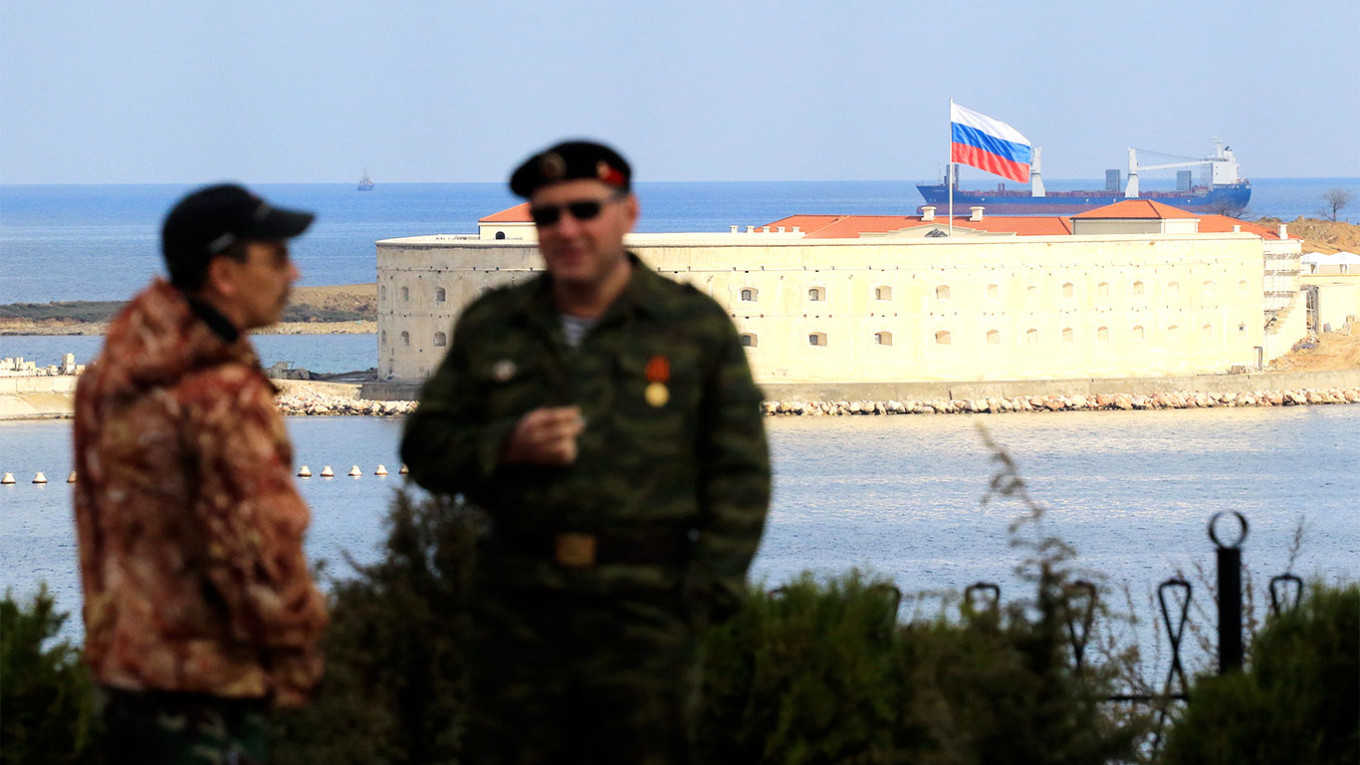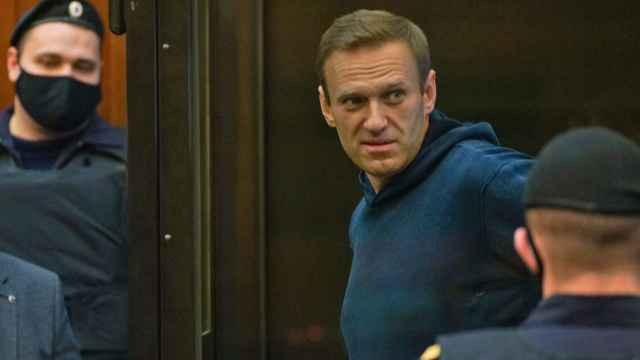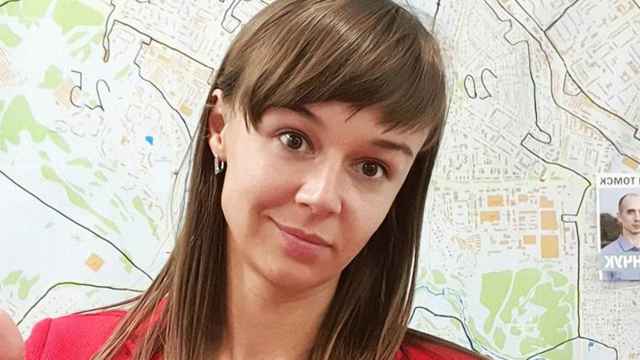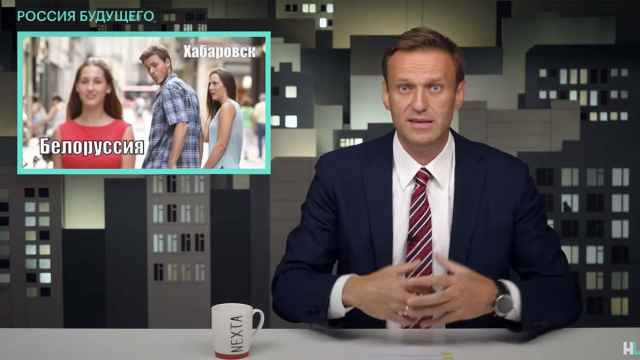The jailed Kremlin critic Alexei Navalny released a 15-point plan outlining his vision for a post-war Russia last month which, while largely reaffirming his previously held positions, did at least indicate one potentially significant policy shift.
Asking rhetorically where Ukraine’s borders should be, Navalny’s answer is simple: Ukraine’s borders are those “internationally recognized and defined in 1991.”
“Russia also recognized these borders back then, and it must recognize them today as well,” he continued. “There is nothing to discuss here.”
It may seem insignificant, but his answer represents a major deviation from the usual Team Navalny line. As recently as January, Navalny’s deputy at the Anti-Corruption Foundation, Maria Pevchikh, refused to discuss the future status of Crimea in a controversial interview with The Guardian.
The “Crimea question” has been an uncomfortable one for Navalny ever since Russian troops, stripped of their insignia and dubbed “polite people” by the Russian media, seized strategic locations across the peninsula in 2014, thus annexing Crimea from Ukraine.
Shortly afterward, while under house arrest on the eve of the referendum to determine Crimea’s future status, Navalny published a blog post entitled “Expanded position on Ukraine and Crimea” in which he voiced his support for that year’s Maidan protests in Kyiv, which he described as a popular uprising against corrupt and thieving officials. But he also decried Soviet leader Nikita Khrushchev’s 1954 decision to gift Crimea to Ukraine, calling it “voluntaristic, unfair and illegal” — though he stressed he did not support the recent Russian takeover.
Just two days after the annexation, in a New York Times article entitled “How to Punish Putin,” Navalny again emphasized the historic links between Crimea and Russia, while continuing to condemn Russia’s actions. While he made repeated calls for sanctions on Putin’s regime, he made no mention of the peninsula's future.
Still under house arrest later that year, Navalny gave a lengthy interview to the liberal radio station Ekho Moskvy. Asked whether Crimea was Russian, Navalny replied that it belonged to the people of Crimea. Unsatisfied, the interviewer continued to press for an answer until Navalny conceded that Crimea de facto belonged to Russia, adding that the Ukrainians had to stop lying to themselves and accept that Crimea would “never in the foreseeable future” be returned to Ukraine.
Asked directly whether he would favor ceding Crimea to Ukraine were he Russia’s president one day, Navalny ruled out the peninsula’s unconditional return, famously quipping: "Is Crimea some sort of sausage sandwich to be passed back and forth? I don't think so."
With no obvious solution in mind, Navalny opted to call for a new referendum on Crimea’s status, though this time a free and fair one overseen by international observers. While he wouldn’t be drawn on whether he thought the referendum should be binding or advisory, he did say that it should be followed by a negotiated conciliation process that could take “decades” and that Ukraine should commit to not joining NATO and to allow Russia to retain its naval bases on the peninsula.
This position was reaffirmed by Navalny in a 2016 interview with Radio Free Europe. When asked to whom Crimea should belong in a 2018 interview with the BBC, Navalny’s chief of staff Leonid Volkov answered “the Crimeans” before suggesting that the peninsula’s status was a problem best left to the “next generation” of politicians.
While repeatedly condemning the illegal Russian annexation of Crimea as an act of aggression and a violation of international law, Navalny also avoided committing to its unconditional return to Ukraine, preferring instead to kick the can down the road with another referendum and the prospect of a negotiated settlement.
At the heart of this contradictory stance was Navalny’s determination to hold his broad coalition of supporters together. By maintaining a degree of ambiguity over the possible return of the peninsula, Navalny was catering to more liberal voters in Russia as well as his supporters in the West, while being careful not to alienate the many in Russia who support the annexation of Crimea.
More than just a re-packaging of Navalny’s anti-war messaging then, in this context the “15 theses” represent a notable evolution of his position on Ukrainian territorial integrity and a significant departure from his standard ambiguity on the Crimea issue. But what motivated this change?
Arguably, Navalny has come to see Russia’s full-scale invasion of Ukraine as a true point of no return — and has understood that since the massacres of Bucha and Mariupol, the promise of vague future solutions no longer suffices and won't satisfy either wing of his coalition anyway.
The backlash against Pevchikh’s recent interview was perhaps the final straw in making Navalny see he could no longer sit on two chairs. The promise to respect Ukraine’s 1991 borders, and his acknowledgment that there is “nothing to discuss,” is as close as Navalny is likely to come to pledging Crimea’s return to Ukraine.
Navalny’s evolution on the Crimea question is a welcome development given his status as the unofficial leader of Russia’s non-systemic opposition, his large support base inside the country, and his considerable legitimacy on the international stage.
But with Navalny himself languishing in prison and his team scattered across Europe in exile, it looks increasingly likely that the future of Crimea will be determined not at the conference table, but on the battlefield.
A Message from The Moscow Times:
Dear readers,
We are facing unprecedented challenges. Russia's Prosecutor General's Office has designated The Moscow Times as an "undesirable" organization, criminalizing our work and putting our staff at risk of prosecution. This follows our earlier unjust labeling as a "foreign agent."
These actions are direct attempts to silence independent journalism in Russia. The authorities claim our work "discredits the decisions of the Russian leadership." We see things differently: we strive to provide accurate, unbiased reporting on Russia.
We, the journalists of The Moscow Times, refuse to be silenced. But to continue our work, we need your help.
Your support, no matter how small, makes a world of difference. If you can, please support us monthly starting from just $2. It's quick to set up, and every contribution makes a significant impact.
By supporting The Moscow Times, you're defending open, independent journalism in the face of repression. Thank you for standing with us.
Remind me later.








